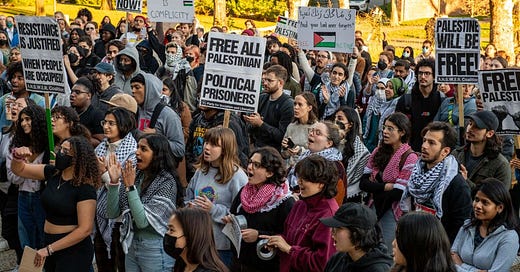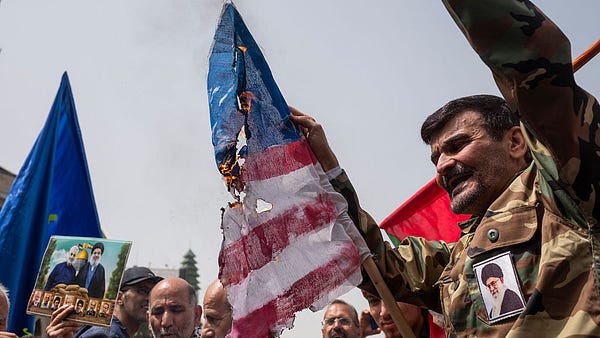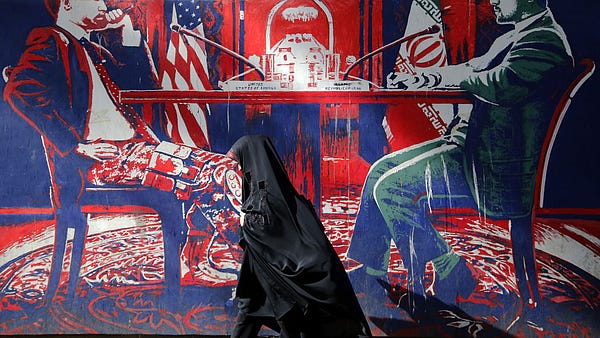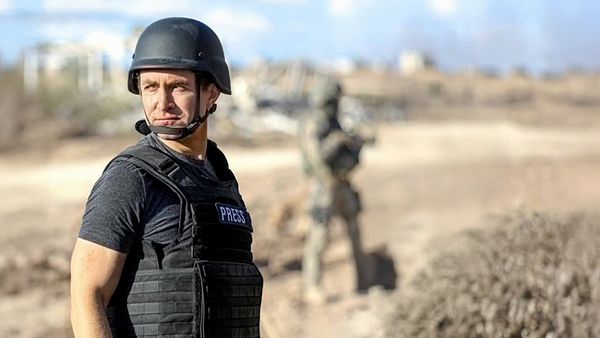
The Free Press

On November 27, MIT postdoctoral associate Afif Aqrabawi posted on X that Zionists steal the organs of dead Palestinians.
“I feel like I’ve seen this movie before,” he wrote. “Sounds like some crazy horror film, no?”
But when a Jewish student approached MIT’s Diversity, Equity, and Inclusion office to complain about the libel against the Jewish State, an administrator responded, “I would be very cautious before accusing any one of our colleagues, staff, or trainees of hate speech.”
The email, which was included in a March 7 lawsuit against MIT that redacted the student’s name, continued:
“Can I gently suggest, in the same spirit of working against polarization, that if we believe (as I genuinely do) that it is wrong to accuse Israeli soldiers of harvesting organs, it may also be a little misleading and inflammatory to compare recirculating, in effect, an old and decontextualized but confirmed report, to accusing Jews of murdering Christian children for ritual purposes (‘blood libel’)?”
That incident is just one example of a disturbing trend that has swept American campuses since the October 7 atrocities against Israel. Jewish students complain about outrageous hate speech from colleagues and professors—and university administrators, typically eager to root out bigotry against other minorities, decline to take action. In this, critics say, they have betrayed not just the ethos of the universities, but Title VI of the Civil Rights Act, which compels institutions to take action against discrimination and harassment.
Now, some of the most elite universities in the country are facing a wave of investigations on behalf of Jewish students. At least 50 colleges and universities have become the targets of Education Department probes and civil lawsuits—including Wellesley, MIT, the University of Pennsylvania, Columbia, and UC Berkeley.
The driving force behind much of this litigation is Kenneth Marcus, a former assistant secretary for civil rights at the Education Department under Donald Trump and the founder of the Brandeis Center, a legal think tank that has sued and won antisemitism cases against universities for the last 12 years. Since October 7, Marcus has added three senior lawyers and two full-time staff to handle the caseload, bringing the total to 18 people. “All of our staff are stretched very thin,” he told The Free Press.
“The goal in these cases is to change the behavior of university administrators,” he said, “so they will deter this sort of activity, which is not tolerated toward any other group.”
But do these legal challenges work? Is it possible for lawsuits to change deep-seated cultures that have cultivated animus against Israel for decades? And do these lawsuits, as critics of them claim, squelch free speech?
Answering the first question, Marcus insists they do. As proof, he pointed to a recent Education Department investigation, spurred by his center, against the University of Vermont.
That complaint, filed in 2021, detailed a shocking series of incidents. For one, a campus organization for victims of sexual harassment declared on Instagram that Zionist students were not allowed to join. Also, a teaching assistant recommended on social media that the grades of Jewish students who expressed support for Israel should be lowered. And finally, after a mob of students threw rocks at the dormitory windows of the Hillel House on campus, and a student yelled at the crowd, they responded, “Are you Jewish?”
Even in the face of these hostilities, the university almost never responded to complaints from Jewish students, the suit said.
In fact, the university’s first response to the investigation when it was made public in 2022 was to dismiss the concerns. “The uninformed narrative published this week has been harmful to UVM,” the school’s president, Suresh Garimella wrote. “Equally importantly, it is harmful to our Jewish students, faculty, staff, and alumni.”
But five weeks later, on October 28, 2022, Garimella reversed his position after national Jewish organizations signed a letter taking him to task for ignoring the problem.
As a result, one year later, the university has reformed. While in the past, its official antidiscrimination policy did not include special protections for students based on their ancestry, the school has now updated its rules to be clear that antisemitism, along with any other hatred toward ethnic groups, is not accepted at the university. And Jewish students, according to the university’s Hillel House president Matt Vogel, now say they receive prompt responses to complaints from the administration, often within 24 hours.
“There has been a remarkable evolution in visible support for Jewish students, updated policies, and improved systems and processes for bias reporting,” Vogel wrote in a recent post.
On April 3, 2023, the Education Department considered its investigation into the University of Vermont resolved.
“No one is saying we’ve cured antisemitism in Vermont or that the work can stop there,” Marcus said. “What people are saying is that the university is dramatically more responsive to antisemitic incidents than it was before.”
Yael Lerman, the director of the StandWithUs Center for Legal Justice, one of the groups representing Jewish students at MIT in the lawsuit filed this month, said many universities are in violation of Title VI of the Civil Rights Act, which protects minority students’ ability to “participate in or benefit from the services, activities, or opportunities offered by the school.”
Lerman said she wants universities to take “forceful and timely remedial action against those who violate school policies and target Jewish students for discrimination and harassment.”
But this wave of lawsuits also highlights the tension between civil rights law and free speech. Pro-Palestinian groups have accused Marcus of using these complaints to pressure college administrators to suppress political activism critical of Israel. A lawyer for Palestine Legal, Radhika Sainath, told The New York Times that the goal of these lawsuits is “not to win on the merit, but to force universities to investigate, condemn, and suppress speech supporting Palestinian rights, because they are so fearful of bad press and donor backlash.”
And yet, her critique ignores the fact universities have practiced a double standard when it comes to free speech for years. A Penn law professor, Amy Wax, was disciplined by the university for private remarks she made about African American students that were recorded on Zoom, suggesting some were not prepared for the rigors of the classroom. Other students and professors have faced sanctions from universities for speech-related offenses. But when Jewish students have complained about antisemitic speech, universities have largely been unresponsive.
Still, clamping down on campus antisemitism can go too far. After Texas governor Greg Abbott signed an executive order Wednesday mandating that his state’s higher education institutions “update free speech policies” and even consider expulsion from colleges as an appropriate punishment, free speech organization Foundation for Individual Rights and Expression (FIRE) accused him of overreach.
“State-mandated campus censorship violates the First Amendment and will not effectively answer antisemitism,” FIRE said in a statement. “When speech on contentious issues is subject to punishment, minds cannot be changed.”
Marcus said a better way to combat antisemitism is to target the Diversity, Equity, and Inclusion (DEI) bureaucracies on college campuses, which often perpetuate the notion of Jews being “oppressors.”
In the short term, universities should “audit their programs to ensure they are not disseminating the same kinds of anti-Jewish stereotypes circulating in the institution and they are not exacerbating the problems they are trying to address,” he said.
But, in the long term, the entire DEI model should be dismantled, Marcus said.
“As long as DEI programs are built upon the dichotomy of oppressors and oppressed, Jews will too often be defined as oppressors and told to own their privilege,” he said. “This entire ideological approach needs to be dismantled.”
Eli Lake is a writer and podcaster for The Free Press. Read his piece, “Could October 7 Bring Down the Squad?” and follow him on X at @EliLake.
To support Eli’s writing, and all of the work of editors, reporters, interns, and producers at The Free Press, become a subscriber today:














The problem with these lawsuits is that the UNIVERSITIES pay, not the Administrators who perpetuate the Jew-hatred. For many elite universities, this can be easily paid out from endowments or from state funding.
You have to hit the Administrators in their personal pockets.
In this astonishing and very disturbing report the part that totally "freaks me out" is that the MIT administrator claims that the accusation of the IDF harvesting organs is "an old and decontextualized but confirmed report," Confirmed? Confirmed?! This is supposedly an administrator in a top tier university? This administrator is supposed to objectively and fairly adjudicate claims of harassment and discrimination? This is far beyond Orwellian, it now in the realm of Kafka.